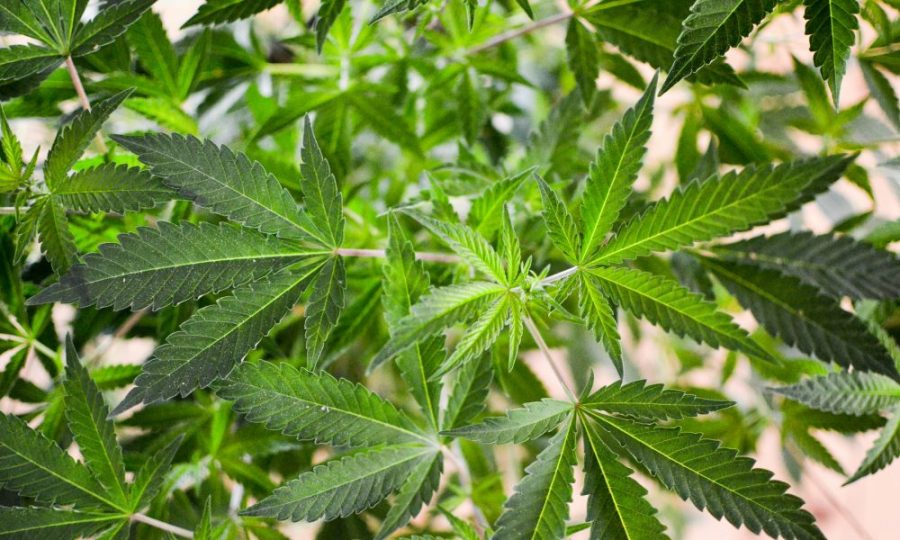Legalization of Marijuana Prevents Injustice
New York State recently legalized recreational marijuana, a notable switch in stance after years of slow change and pushback. While medical-use cannabis has been legal since 2014, new legislation, signed by Gov. Cuomo on March 31, will allow recreational cannabis use for all adults.
Many have speculated that the sudden support from Cuomo and the rush of movement on legislation so highly desired by citizens is a result of Cuomo’s weakened reputation after multiple scandals and an attempt at winning back the support of the general public. Cuomo’s administration has attempted to frame his support for the bill around economic concern, claiming that the legalization of recreational marijuana will both create new jobs in a now-legal industry and produce significant tax collections.
Regardless of whether or not the sudden approval of the bill is an attempt to win back the good graces of New Yorkers, it is a significant change in governmental legislation. This bill can also act as a look into the future; state decisions tend to filter throughout the country, albeit sometimes at a tortoise-like pace.
The question logically becomes whether or not the legalization of marijuana is the right choice for not just New Yorkers but all Americans. The answer is a clear yes. After a deeper look at the argument, the legalization of marijuana can help prevent some of the most blatant forms of discrimination tied deep within our country’s legal justice system.
There are substantial arguments against the legalization of recreational marijuana. The most common argument used against the legalization of marijuana is an obvious one: that marijuana is a drug. As with all other drugs, it comes with its risks. Health education classes in public schools love to portray marijuana as a “gateway drug,” or a drug that will lead to the usage and abuse of harder substances. While this is partially true, some of the drugs that marijuana is found to commonly be linked to are substances like alcohol and nicotine, both of which are legal and, for the most part, socially acceptable. It doesn’t make much sense for marijuana to be outlawed for the “safety of the people” when marijuana is a relatively safe drug, along the same safety lines as alcohol and nicotine. Of course, when this substance is abused or used by children and teenagers who are still developing, the negative effects increase, but the same is true of other legal substances. It just doesn’t make sense for marijuana to be illegal for protective measures.
Another common argument used against the legalization of marijuana is the idea that once marijuana is legalized, users will simply be high all the time. There is this idea that society will become lazier. Work productivity will decrease as a result. There is also the fear of individuals driving while high and putting others in danger. While these are legitimate fears, the arguments ignore that these fears exist for legal substances as well, and will be handled similarly. Driving while high is certainly an issue — just as drunk driving is now. But the answer is not to outlaw alcohol. Increased enforcement of drunk driving laws, as well as awareness of the issue (such as in driver’s education classes), can help minimize the issue in a more realistic manner. The issue of driving while high will be treated, I assume, in much the same way. Similarly, the worries about having members of society high all the time are illogical. These worries assume that everyone who partakes in marijuana usage must be an addict, an assumption that is not made when it comes to worrying about workers coming into their job drunk every day. There will always be people who struggle with drug abuse. This is a real and prevalent issue, but it should not be confused with the tendencies of the average user.
Whether or not you approve of the usage of marijuana, there is one key reason to support the legalization of cannabis: the undeniable racial disparity in marijuana arrests. The criminalization of marijuana has proved to be just another way of perpetuating racial discrimination within the justice system. Although Black people and white people use recreational marijuana at very similar rates, Black people are arrested for illegal possession of marijuana at nearly four times the rate of white people. In some states, the gap between arrest rates is even higher.
These numbers are outrageous. Marijuana is no longer a taboo in society — it has not been since the 1960s. When you drive through your neighborhood or walk around your campus, the sight of someone smoking marijuana is not uncommon.
The illegalization of marijuana is merely an excuse to arrest and criminalize Black people yet again for something that is widely used and embraced by much of society. While I would love it if there was a quick, surefire way to fix the blatantly racist practices of the justice system, it is time to take a more realistic viewpoint. The legalization of marijuana will not only prevent the immoral arrest and criminalization of discriminated individuals, but it will expunge the criminal records of those previously arrested for marijuana-related crimes.
The arguments debating the morality of marijuana should become irrelevant once we recognize the immorality of the arrests surrounding this drug.
Taylor Herzlich, FCRH ’23, is a journalism major from Mt. Sinai, N.Y.

Taylor Herzlich is a senior at Fordham College at Rose Hill. She is majoring in journalism with a minor in English. Taylor started writing for the Ram...








































































































































































































